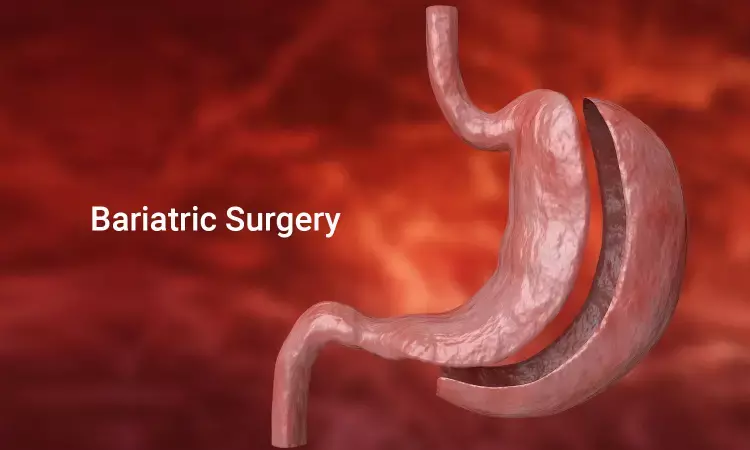- Home
- Medical news & Guidelines
- Anesthesiology
- Cardiology and CTVS
- Critical Care
- Dentistry
- Dermatology
- Diabetes and Endocrinology
- ENT
- Gastroenterology
- Medicine
- Nephrology
- Neurology
- Obstretics-Gynaecology
- Oncology
- Ophthalmology
- Orthopaedics
- Pediatrics-Neonatology
- Psychiatry
- Pulmonology
- Radiology
- Surgery
- Urology
- Laboratory Medicine
- Diet
- Nursing
- Paramedical
- Physiotherapy
- Health news
- Fact Check
- Bone Health Fact Check
- Brain Health Fact Check
- Cancer Related Fact Check
- Child Care Fact Check
- Dental and oral health fact check
- Diabetes and metabolic health fact check
- Diet and Nutrition Fact Check
- Eye and ENT Care Fact Check
- Fitness fact check
- Gut health fact check
- Heart health fact check
- Kidney health fact check
- Medical education fact check
- Men's health fact check
- Respiratory fact check
- Skin and hair care fact check
- Vaccine and Immunization fact check
- Women's health fact check
- AYUSH
- State News
- Andaman and Nicobar Islands
- Andhra Pradesh
- Arunachal Pradesh
- Assam
- Bihar
- Chandigarh
- Chattisgarh
- Dadra and Nagar Haveli
- Daman and Diu
- Delhi
- Goa
- Gujarat
- Haryana
- Himachal Pradesh
- Jammu & Kashmir
- Jharkhand
- Karnataka
- Kerala
- Ladakh
- Lakshadweep
- Madhya Pradesh
- Maharashtra
- Manipur
- Meghalaya
- Mizoram
- Nagaland
- Odisha
- Puducherry
- Punjab
- Rajasthan
- Sikkim
- Tamil Nadu
- Telangana
- Tripura
- Uttar Pradesh
- Uttrakhand
- West Bengal
- Medical Education
- Industry
Bariatric surgery may increase fracture risk

Gastric bypass surgery may have higher risk of fracture than other types of weight-loss surgeries
Sweden: People who undergo weight loss surgery may face an elevated risk of bone fractures, according to a study published in the Journal of Internal Medicine.
Previous studies have reported an increased fracture risk after bariatric surgery. The researchers conducted the study to investigate the association between different bariatric surgery procedures and fracture risk. The current analysis includes 2007 patients treated with bariatric surgery (13.3% gastric bypass, 18.7% gastric banding, and 68.0% vertical banded gastroplasty) and 2040 control patients with obesity matched on group level based on 18 variables.
Sofie Ahlin, MD, Ph.D., of the University of Gothenburg, in Sweden, the lead author of the study had told that "Our results show that gastric bypass surgery increases the long-term risk of fracture, both compared with non-surgical obesity care and compared two other bariatric surgery methods used in our study, Increased risk of fracture is a serious side effect that should be taken into account when selecting surgical procedures and it should also be kept in mind during post-operative follow-up in patients who have undergone gastric bypass." reports Wiley.
The study included 2,007 Swedish patients with obesity who were treated with weight loss surgery (either gastric bypass, gastric banding, or vertical banded gastroplasty) and 2,040 matched patients who did not undergo surgery. Over a median follow-up of between 15 and 18 years for the different treatment groups, the highest incidence rate for fractures was seen in the gastric bypass group. Rates were 22.9 per 1,000 person-years in this group, compared with 10.4, 10.7, and 9.3 per 1,000 person-years for the vertical banded gastroplasty, gastric banding, and control groups, respectively which means that 229, 104, 107, and 93 people are experiencing a fracture per 10,000 people over one year.
The fracture risk in the gastric bypass group was 2.58-times higher than in the control group, 1.99-times higher than in the gastric banding group, and 2.15-times higher than in the vertical banded gastroplasty group.
For further reference log on to :
https://doi.org/10.1111/joim.13020
Read also:
MBBS
Dr K B AARTHI-has completed MBBS from SRM UNIVERSITY TAMIL NADU,Her interest is in the field of Pediatrics and Anaesthesia, also passionate in doing research and publishing articles.She joined Medical Dialogues in 2020 and publishes health news and medical updates. Email: editorial@medicaldialogues.in. Contact no. 011-43720751,9786713226
Dr Kamal Kant Kohli-MBBS, DTCD- a chest specialist with more than 30 years of practice and a flair for writing clinical articles, Dr Kamal Kant Kohli joined Medical Dialogues as a Chief Editor of Medical News. Besides writing articles, as an editor, he proofreads and verifies all the medical content published on Medical Dialogues including those coming from journals, studies,medical conferences,guidelines etc. Email: drkohli@medicaldialogues.in. Contact no. 011-43720751


